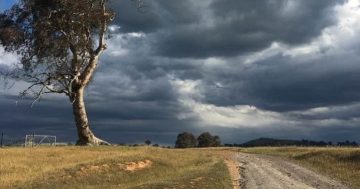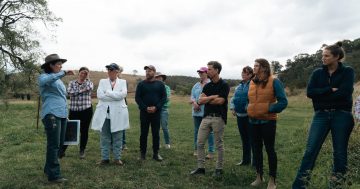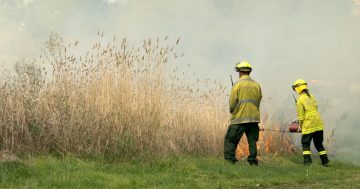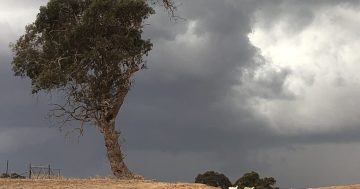
How ready are you to mitigate the impacts of extreme weather? Photo: David Foote, AUSPIC/Department of Parliamentary Services.
How well are you prepared to cope with emergencies, extreme weather events and the results of a changing climate?
A new survey might have you thinking about this in a whole new light – and it might prove critical to how you cope with the changes projected in the coming years.
Conducted by researchers at the University of Canberra (UC) with funding from the ACT Government, the Living Well With Climate Change survey seeks to identify the Territory’s vulnerable cohorts and help design actions that reduce the impacts of extreme weather.

The survey will probe a range of topics to ascertain your preparedness, including whether you discuss plans as a family. Photo: iStock/kupicoo.
It is a follow up on a survey conducted in 2018, prior to the Black Summer bushfires; the results of which surprised many, according to UC Health Research Institute Professor Jacki Schirmer.
“We found there are big differences in resilience to climate change depending on who you are. And contrary to what I think many expected, the people identified as being the most vulnerable to negative impacts from extreme weather like heatwaves and storms were most commonly young people, renters and women – and less often the elderly,” she said.
“A lot of Canberra houses are not fit for purpose for weather extremes. They are expensive to live comfortably in during Canberra winters and cold snaps; they get cold quickly and then don’t warm up during the day.
“The same goes for heatwaves – they heat up quickly and don’t cool quickly at night. That’s a real problem when you have an extended heatwave, and particularly if you have a health problem exacerbated by heat.
“Those older people who own their homes outright, particularly older men, tend to fare better; they have enough capital to invest in things to make their homes more liveable.”
Researchers want to know what has changed in this space in the years since the first survey, during which people endured devastating bushfires, floods and storms.
This is to determine what has improved, what has worsened and where investment is most needed.
“What we don’t want to see is a trend where the vulnerable are worse and worse off. For example, lower income earners trending down in their abilities to cope each time there’s an extreme weather event because their insurance premiums come up,” Prof Schirmer said.
“We’re hoping to find the opposite – that people are putting a range of strategies into place to help them cope.”
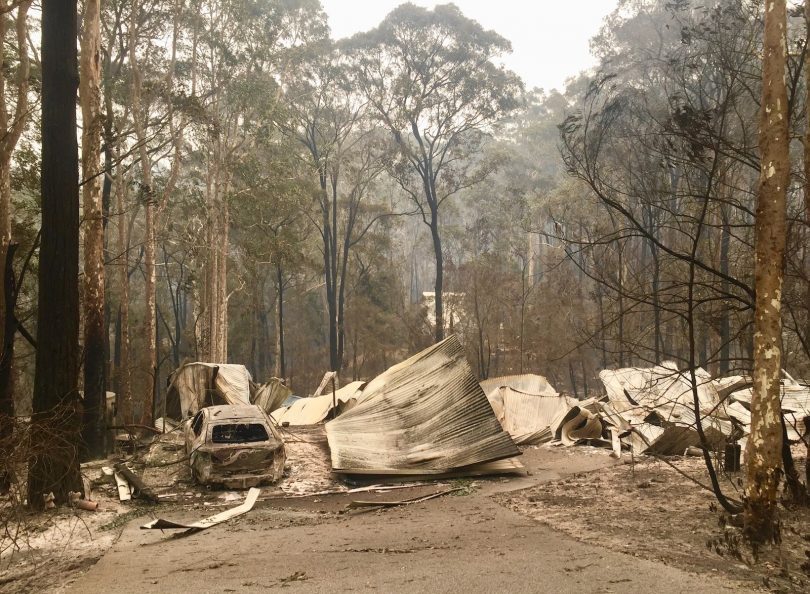
Devastating as the Black Summer Bushfires were, they highlighted how vulnerable many Australians were to wild weather events. Photo: Lisa Herbert.
There are two versions of the survey – a 20-minute one for the time-poor and a more in-depth one-hour version.
Participants are not only in for a chance to win one of ten gift cards worth a total of $2500, but may also find that the process triggers reflection on how confident they are that they can adapt their homes and lives to climate extremes, and actions they might take in future to improve their outlook.
The survey asks about the types of emergency preparation you do, and whether you’ve talked to other people in your household about what to do in an emergency such as a storm or fire.
More “under the radar” considerations include questions asking about how well suburban gardens cope with drought – a factor linked to wellbeing.
The survey also explores awareness of the various programs available to ACT residents.
“There are a number of government programs providing information and support, but not everyone is aware of them, or of what types of support they provide,” Prof Schirmer said.
“Ultimately, the survey will help us figure out how we can help people in the ACT maintain a high quality of life and live well with a changing climate.”
The Living Well With Climate Change survey is open until 31 July – take the survey here for your chance to win a gift card.














